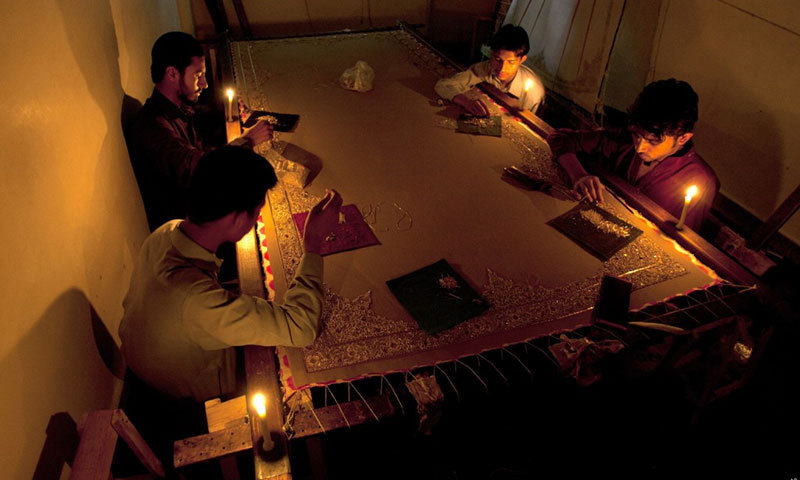LAHORE: Wednesday turned out to be the toughest day so far this summer as mercury rose to mid-40s Celsius in most parts of the country and electricity shortfall exceeded 7,500MW – resulting in over 14 hours of loadshedding in urban areas and even more in rural areas.
By noon, the demand soared to 21,500MW with the generation recorded at 14,700MW. By the peak hours (6pm to 11pm), which included Iftar time, the demand rose by another 1,000MW while generation went up by only 300MW.
It was the most difficult day so far, conceded an official of the Pakistan Electric Power Company (Pepco). “Things have gone so bad that the Ministry of Water and Power instructed all its companies (generation, transmission and distribution) to stop sharing even routine data with the media. No media releases were issued as the situation went completely out of hand,” he admitted.
“Even massive water releases from Tarbela Dam did not help because the dam level was too low to allow full generation even with full releases,” said an official of the National Transmission and Dispatch Company. The dam contributed only 2,900MW – a deficit of almost 550MW – because of lower head level. The Mangla releases are down to 25,000 cusecs. It literally drained the hydel option out of the system, he said.
Also read: Pepco data shows no increase in power generation in a year
“The money squeeze and resulting fuel supply shortage hit government’s own plants hard,” says an official of the Genco Holding Company.
The plants are down to only three-day stocks and are getting only 3,000 to 4,000 tons a day against total requirement of well above 15,000 tons. The sector cannot pay its dues as collections are down to 87 per cent which, in fiscal terms, mean a cash shortage of around Rs130 billion. Add another Rs40bn to the tally that system suffers because of line losses over and above the permissible limit. This loss of Rs170bn explains the fuel squeeze that is hampering the Genco generation – generating anywhere between 1,300MW to 2,000MW, depending on the planning.
Adding another layer to the crisis is the fact that the government has to save fuel and water also for the Sehar and Iftar. This in practical terms worsens the situation for the rest of the day, he said.
“The Pakistan State Oil is reeling under the debt of Rs160bn because of the power sector,” says the Pepco official. With oil supplies down, Gencos and IPPs have seen their contribution going down substantially.
All this means that more than half of the country is without power at any given time. One still has to deduct four per cent transmission losses and the countless feeders exempted from loadshedding to arrive at the exact figure available to common consumers.
The real help at this time can come only from the Mother Nature, which can provide some relief in temperature. Otherwise, according to him, if the meteorological forecast turns out to be true for the next few days (mercury rising even further), the country is in for more gruelling days.
Also see: Govt starts evaluating 4,250MW coal-based power plants
“There is simply no solution to the crisis if the statement of the secretary for water and power is to be believed that the system cannot sustain more than 15,000MW and becomes red hot beyond that level,” he said. Few in the sector accept the secretary’s claim, but if that is taken as a benchmark, the disastrous conclusion will be: the system can handle only 15,000MW and the demand has gone beyond 22,000MW. That means 7,000MW, even if available, cannot be taken to people and 14-hour loadshedding will now be part of life during the summer, he concluded.
Published in Dawn, July 10th, 2014













































